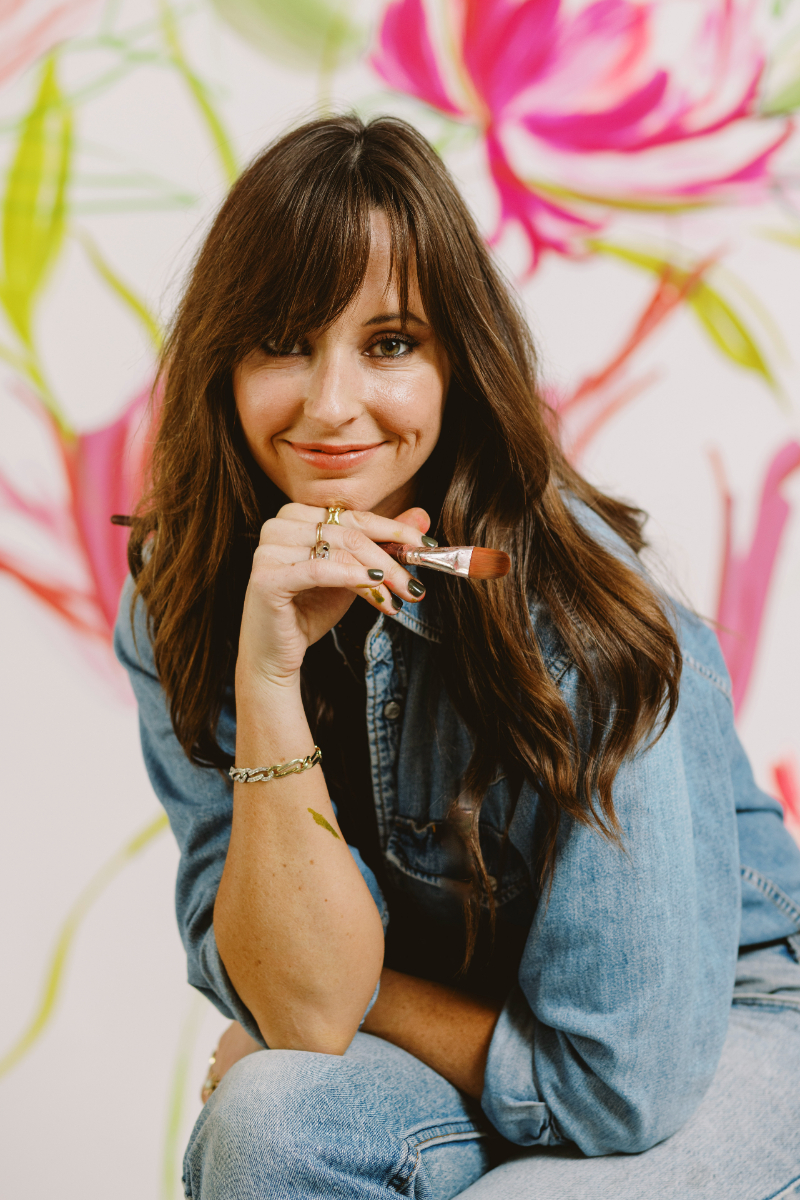Are you ready to teach a workshop?
Maybe you've been asked by a local shop to teach watercolor, or calligraphy, photography, you name it…but you just don't know if you're ready yet. Seven years ago when I taught my first ever calligraphy workshop, I was no expert, but I knew a few things about calligraphy. More than a beginner!
Over the years, I've made LOADS of mistakes, have my share of incredibly embarrassing workshop stories (I'll share some in later posts), and have learned a ton. Because there's a lot of you reading this blog that are curious about teaching, I thought I'd give you a little insight on what it takes to teach your first workshop and start earning some extra $$!
3 ingredients you need to find out if you're ready to teach your first workshop
Finding Your Superpower
It's what you're obsessed with. What lights you up when you talk about it. If you're wondering what this could be, ask yourself these questions: What have I seen results in? What's an area where I feel like I've unlocked some knowledge?
Notice I'm not saying you need to be an expert to teach. If every single person waited to teach until they were an expert, we'd have no teachers. Teaching in-person workshops is not teaching neuroscience. You just have to be a couple of steps ahead of the student. During my first year of teaching workshops, I was still in the process of learning the medium myself! But, I knew what supplies got good results, I knew how to paint some basic strokes and leaves, and I was comfortable and confident in these results. You don't need to pack in an entire college course worth of knowledge into a 3-hour workshop. You just have to give them 3 takeaways that can give them results.
Examples (in the case of a watercolor workshop…repurpose these for whatever medium you teach!): The supplies you use and why, color mixing, how to paint a leaf (or floral, abstract, etc.)!
Make sure before you go to list the class that you are incredibly SURE of your promise. If the description just says “Intro to Floral Watercolor,” buy you only cover ONE flower, or maybe just leaves, you might have some disappointed students. Instead say, “in this class, you will walk away with high-quality supplies and how to use them, techniques and tips for color mixing, and we'll end the class painting leaves for a wreath!”
Clear descriptions with a promise is the key to happy students. And then you know what to deliver! Make this promise more basic than you think, so then if you have extra time, you can over-deliver and make students extra happy!
Setting Yourself Apart From the Rest
Never underestimate the power of a good brain dumping session. Research the competition and see what's already being done. What are the industry leaders teaching? If you're getting asked to teach something similar, how can you make it your own? Could you provide a handout or booklet that helps the student take the course further?
Or is your teaching style or topic unique in a certain way? Set the time, and allow yourself to dump everything you know and what strengths you think you have on to paper. Use these as starting off points for building out a class, for adding to the description of the class and in sales copy. If you cover topics in a fun and in-depth way, TELL PEOPLE! No one wants a snore-fest!
When doing this brain dump, you'll also discover aspects and insights to the course building process that you may have not discovered otherwise. You may realize that, “hey! I could probably teach this too,” or, “I get asked this a lot, so maybe I'll try teaching xyz”…try it out! It's a confidence booster too if you just allow yourself to flow and go for it!
Overcoming Limiting Mindsets
Imposter Syndrome. We all deal with it. The first workshop I ever taught was within ONE YEAR of me using a calligraphy pen. Same situation with watercolor! After teaching a few calligraphy workshops, I was asked to teach watercolor after THREE MONTHS of painting.
Seven years ago when I started teaching, my follower count was under 1,000, I was no where near being an expert, and I'd never taught a class in my life. That feeling of Imposter Syndrome is real.
But guess what?
Everyone at EVERY stage of their business hears that voice…you know the one that says “you don't know enough to teach,” or “what do you have to offer? There's so many other talented people already doing it…”
While I had those voices in my head before I said “yes” to teaching for the first time, it didn't stop me. This led me to teaching workshops globally and writing how-to books! Just because someone is more experienced doesn't mean they don't hear those voices…the voices just get softer and become easier to ignore.
If 7 years ago Jenna let those fears and voices take over, she wouldn't have 2 published books (and a third on the way). She wouldn't have taught her courses to THOUSANDS all over the world. And most importantly, she wouldn't have discovered her superpower: a love of teaching and helping others flourish.
So, instead of asking yourself if you're ready to teach a workshop…go for it! Start small! Maybe just to a handful of people. Make adjustments and tweak what you teach as you go. It's all a learning process!
Psssst…I have a FREE Workshop Cheat Sheet here for you!













Thanks for sharing this! I just taught my first workshop and it’s so good to hear where you were when you started, especially because I’m in nearly that same position myself. And, your tips are such great ideas to improve before my next workshop.
Yes! Congrats on your workshop, Erika! I’m so glad this is helpful.
I will do, thanks so much!
I’ve just been inspired by yourself to teach again…I lectured on Materials Techniques and Processes for a Dimploma course after I graduated….but now I have a wealth of knowledge and experience to teach my own workshops! Could do with the extra cash!